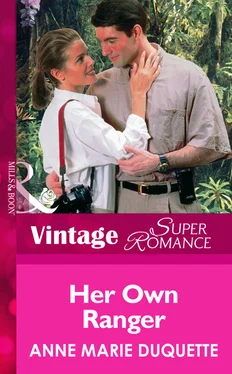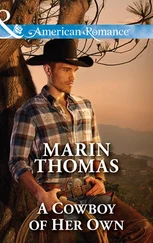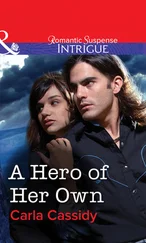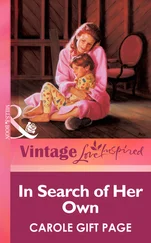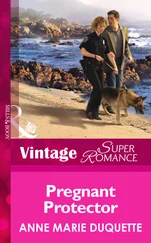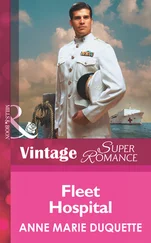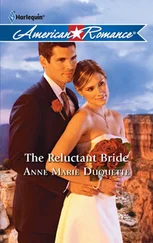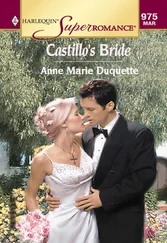Carson was immovable on that point, though he wore no vest himself. He wasn’t foolhardy, but his position in the rear of the canoe meant he was doing most of the steering, something he couldn’t easily accomplish with a heavy bulletproof vest. Wearing one would have ensured that if the canoe upended he’d sink straight to the bottom of the Everglades. Carson preferred to take his chances.
Ray preferred the same, but Carson refused to risk anyone else’s life, hence Ray’s present complaints. Ray was loyal to family and fiercely loyal to Carson’s late father. When he’d discovered Carson was planning this trip, Ray had insisted on coming along as reinforcement.
“If anyone from the casino saw me, I’d die of embarrassment.” Ray touched the mouse ears on his ball cap and flinched. Suffering in silence wasn’t his strong point. “This reeks big-time. I can’t believe people actually spend money on this trash.”
“Hush, or I’ll make you wear the camera around your neck as well,” said the older woman behind Ray. “Remember, noisy with the oars. We’re all supposed to be tourists.”
“I’ve been paddling canoes my whole life,” Ray grumbled. “I don’t know how to be noisy.”
“Try,” Carson insisted. “We don’t want poachers thinking we’re a threat.”
“Fine. I’m splashing. Are you happy, Mother?”
Ray’s mother, Deborah Weaver, was Carson’s aunt and Ferris Ward’s sister. When the poachers had killed Ferris, his widow, Mary, decided to leave the tribe’s wetlands home. Ray found her a job with one of the prosperous tribal bingo halls. Mary, like Ray, detested the Everglades as much as Carson and Deborah loved them. Ray only returned for family reasons, nothing else.
Carson had stayed behind, unwilling to give up his family home or his job as a ranger. Mary repeatedly begged him to join her. He refused, vowing to stay and find his father’s killers, determined to bring them to justice.
As only children, Carson and Ray looked after their aunts; Deborah was a widow, too, whose husband had died of natural causes years ago. Protection was the tribal way. Of the two mothers, traditional Seminole Deborah Weaver had always been the stronger parent, the stronger woman. She’d volunteered to accompany her nephew and son today, shrugging off their objections.
“You should’ve stayed home, Mother,” Ray muttered, not for the first time. “We’ve got armed crazies out here. You could get hurt.”
“Ray, I’m wearing a bulletproof vest and a life jacket.”
“That won’t keep you a hundred percent safe. Carson, why didn’t you chain her to her loom?”
“I tried.” Carson dodged the spray of water Deborah sent his way with a deliberate flip of the oar. “But ever since I planned this scouting party, she insisted on coming. You know that. The tourist disguise was her idea.” Ignoring Ray’s exaggerated groan, he said, “I couldn’t shake her loose. Or her apprentice, either.”
“You should have tried harder,” Ray told him. “Should’ve told ’em both to stay home.”
“I did.” Carson hadn’t wanted the women along, either, but Seminole women—especially Deborah—didn’t take kindly to being told what to do.
“He really did,” the fourth person in the canoe replied. Adoette Fisher, twenty-seven, was recently apprenticed to Deborah at the looms, although during the busy tourist season, she often worked as an operator with the tribe’s prosperous airboat business. “She never listens, does she, Carson?”
The brilliant smile thrown Carson’s way wasn’t meant to dazzle, but to make Ray jealous. As usual, her charm failed to affect him. Carson’s heart went out to Adoette.
These days, Seminoles usually made one of two choices; there were those who worked in the modern world, often in the hotel-casinos and bingo halls, and those who lived in the wetlands, following the traditional tribal ways. In the subtropical grasslands, raising cattle on the treeless savannas was part of that life. Hand-weaving colorful cloth with intricate ancient patterns was another. Seminole textiles were in demand all over the world, much like the Southwest Navaho’s woven rugs.
Ray wanted nothing to do with looms or herds. He’d eagerly left the hardships of the Miccosukee Reservation wetlands—what he described as “smelly, buggy swamps”—for life in Florida’s city world. Adoette, a Big Cypress Reservation Muskogee Seminole, had been born and raised in those swamps; she felt at home there. Even her Indian name, pronounced Ah-do-ay-tah, meant “born beneath a big tree,” as indeed she’d been. Carson remembered Ray’s thoughts on that subject.
“To think of her mother squatting under a cypress in the mud makes me sick. I don’t care if I am Seminole. The practice is unsafe and outdated. No wife of mine will ever deliver our children that way.”
A bad combination...Ray and Adoette. Neither one wrong, neither one right. No middle ground, only trouble.
Carson knew Adoette loved Ray. Adoette had met him during her brief, disastrous try at college. When she dropped out after less than a year, she didn’t return to Big Cypress. Already a skilled airboat operator and a long-time friend of the Ward family, she’d requested an apprenticeship with Deborah, moving to the open wetlands of the Miccosukee Reservation. Although she’d never admitted as much, Carson suspected the main reason she’d done it was to be closer to Ray. But Ray knew what he wanted in a wife, and a traditional Seminole wasn’t it.
As for Carson, he didn’t want a wife, period. Not until he’d caught the men who’d killed his father.
His vow was made as his father died in his arms last summer. Carson had begun his job with the National Park Service long before Ferris retired. Ferris himself had spent his whole life in the NPS, the federal custodian of the rare and endangered life inside Everglades National Park. All park rangers were sworn to protect it. The uniform Ferris once wore had legally empowered him to shoot any human hunters who threatened the Everglades.
Ferris’s position was a unique, often solitary one, for he alone had patrolled the border between park land and Native American land until Carson was old enough to join him.
Young Carson had grown up at his father’s side. Ferris had taught him to paddle a canoe, and taught him about his home. He stayed at his father’s side, learning enough to make him want to become a ranger himself. The job was perfect for Carson, since only someone in his position had access to all the Everglades. The NPS wasn’t allowed unlimited access to the five major tribal reservations, while the tribe wasn’t allowed free access to the Everglades government lands. But Seminole park rangers faced no barriers. They were almost as free on the land as their ancient ancestors had been. Father and son had enjoyed the job and each other’s company—until a poacher’s bullet put an end to their team.
Carson had volunteered to take over the border work by himself. He continued his solitary patrol—a lone ranger—because it was the only way he’d ever find his father’s killers. They’d been operating irregularly in the Everglades for the past two summers, killing gators for their hides and leaving the carcasses for scavengers to dispose of. They were careful, cautious men like himself but with more regard for money than for life. Arrests of small-time poachers had been made, but the men who’d killed his father still eluded him. Carson vowed their capture or his own death trying.
Until then, romance was out of the question. He would have welcomed a woman in his life, but his job—and now this quest—made serious courtship difficult. Carson remained solitary, grieving his father’s death, and wondering if he could ever love a woman as much as he loved the Everglades. He delighted in everything about this place—its panthers, egrets, playful manatees, its cypress draped with Spanish moss, even its snakes and those ancient dwellers, the alligators and crocodiles. The beauty of the land was his only inheritance.
Читать дальше
